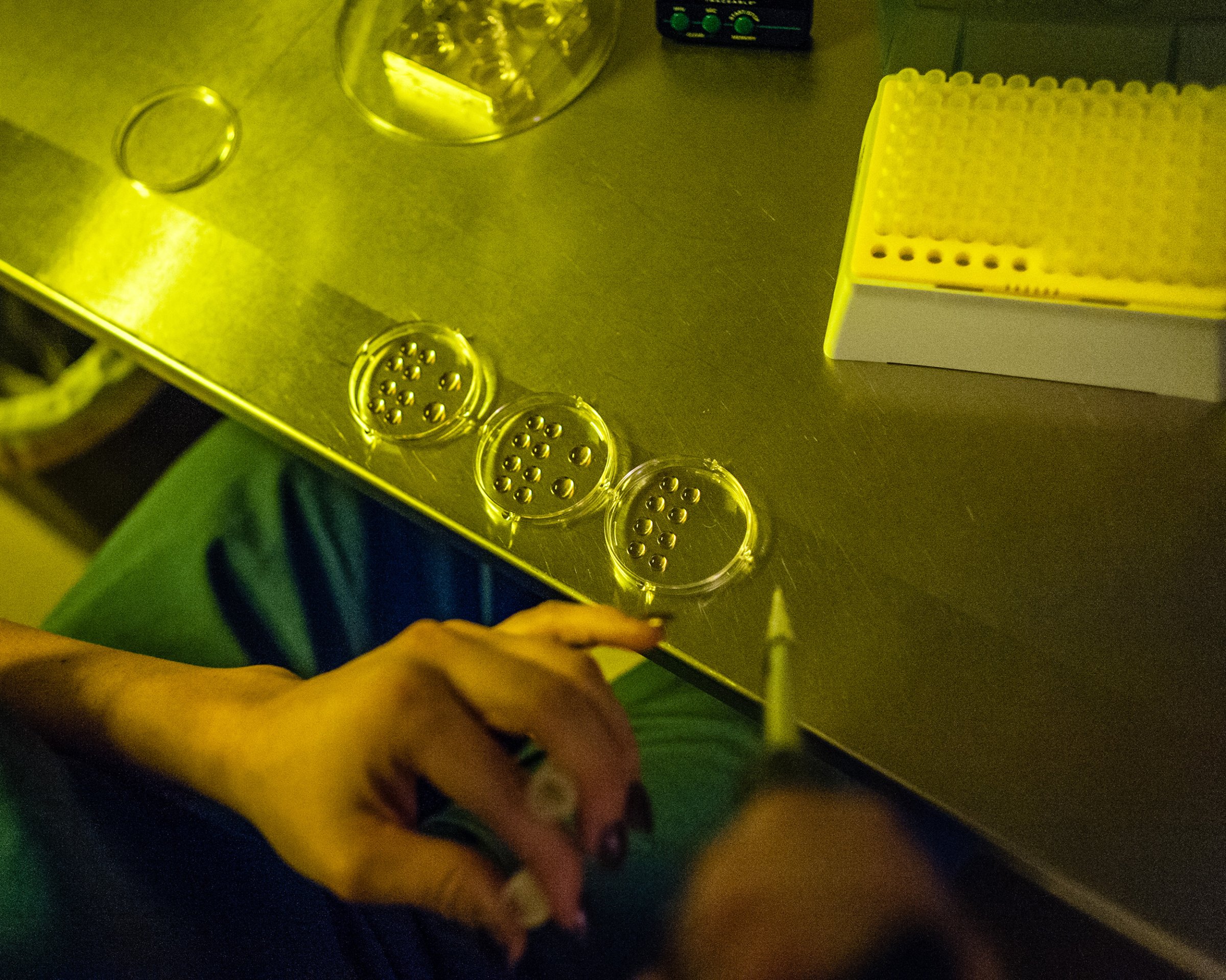
Three former Bachelor contestants—Kaitlyn Bristowe, Carly Waddell, and Andi Dorfman—reunited in Chicago last week to promote boutique egg-freezing clinic Ova, where pal (and Bachelor winner) Whitney Bischoff works as a nurse. Waddell froze her eggs one year ago at Ova, and Bristowe is going through the process now.
Both women have talked about their experience on social media, and the sense of relief it has brought. In a post on Instagram, Waddell called egg-freezing “the best backup plan.” And Bachelorette star Bristowe wrote on Twitter that it has put her mind at ease: “I’m taking control of my future!”
But the decision to freeze your eggs isn’t as simple as it might seem. To learn more, we spoke with Brooke Hodes-Wertz, MD, assistant professor of obstetrics and gynecology at NYU Langone Medical Center. She walked us through some of the common misconceptions about the procedure, and what women need to know before they call a fertility clinic.
Myth: Egg freezing is a good insurance policy for women in their late 30s
It’s actually best to freeze your eggs before you turn 35, says Dr. Hodes-Wertz. Fertility rates gradually decline as we get older, she explains, so you have a higher chance of success if you freeze your eggs at a younger age. “Some women in their 20s aren’t really thinking about when they want to have kids, so it tends to be most beneficial for women in their early 30s,” she says. “Maybe they haven’t settled down yet, but they’re thinking about it and their eggs are still good.”
Myth: It’s a simple process
This is one of the biggest myths about egg freezing. “It’s not as easy or straightforward as people make it out to be,” says Dr. Hodes-Wertz. “It’s very time consuming.”
First, you’ll meet with a physician to go over your medical history. You’ll also get a blood test and a baseline ultrasound. You may need to go off birth control a month before the process begins.
Then you will give yourself hormone injections two to three times a day. At least every other day, you’ll return to your doctor’s office for more ultrasounds. After about two weeks, depending on your body’s response to the hormones, you will undergo the egg retrieval process. While you’re sedated, your doctor will insert a long needle into your vagina to pull out the eggs.
At Dr. Hodes-Wertz’s clinic, about 20% of patients end up doing a second round of egg retrieval, since a greater number of eggs raises the chances of getting pregnant.
RELATED: 9 Things Every Woman Must Know About Her Fertility
Myth: The recovery is no big deal
“The week after can be really uncomfortable,” says Dr. Hodes-Wertz. “The ovaries are very swollen, and you can feel really bloated and full.” Most doctors recommend avoiding exercise during this time, she adds, since the swollen ovaries can twist and cut off their own blood supply.
Myth: It’s at least partially covered by insurance
It’s not typical for most insurance providers to cover any part of egg freezing. And it can be pretty expensive. Dr. Hodes-Wertz says to expect a bill somewhere between $9,000 and $15,000 for the injections and procedure, plus about $1,000 per year to keep the eggs frozen. “Some centers do this exclusively and they offer much more economical rates, but it’s still expensive,” she adds.
To get our best wellness advice delivered to you inbox, sign up for the Healthy Living newsletter
Myth: Freezing your eggs pretty much guarantees you’ll get pregnant later
At most clinics, about 40% of procedures result in a live birth, says Dr. Hodes-Wertz. “A lot of steps can go wrong,” she explains. “Not all the eggs are going to survive the thaw. Not all of them will be healthy eggs, take fertilization, or grow in culture.”
And not all clinics are created equal. Dr. Hodes-Wertz encourages women to research a clinic’s success rate before they move forward with the procedure. “Some clinics are more experienced than others, and you want to make sure you pick a place that has a lot of experience with thawing [eggs] out,” she says.
This article originally appeared on Health.com
More Must-Reads From TIME
- The 100 Most Influential People of 2024
- The Revolution of Yulia Navalnaya
- 6 Compliments That Land Every Time
- What's the Deal With the Bitcoin Halving?
- If You're Dating Right Now , You're Brave: Column
- The AI That Could Heal a Divided Internet
- Fallout Is a Brilliant Model for the Future of Video Game Adaptations
- Want Weekly Recs on What to Watch, Read, and More? Sign Up for Worth Your Time
Contact us at letters@time.com